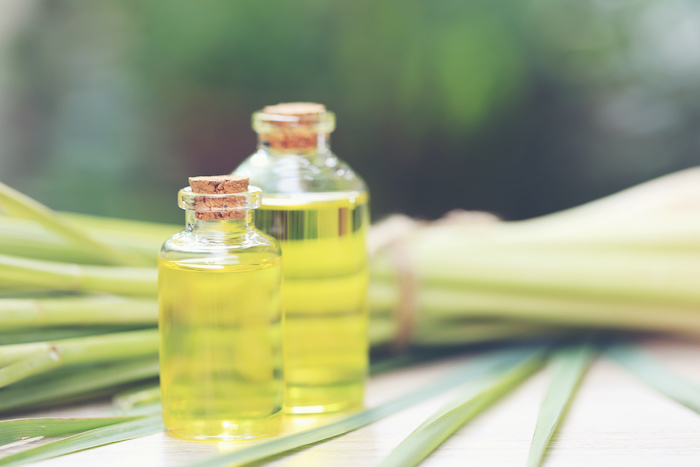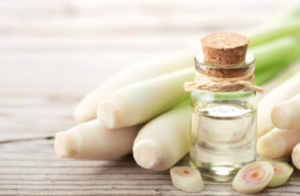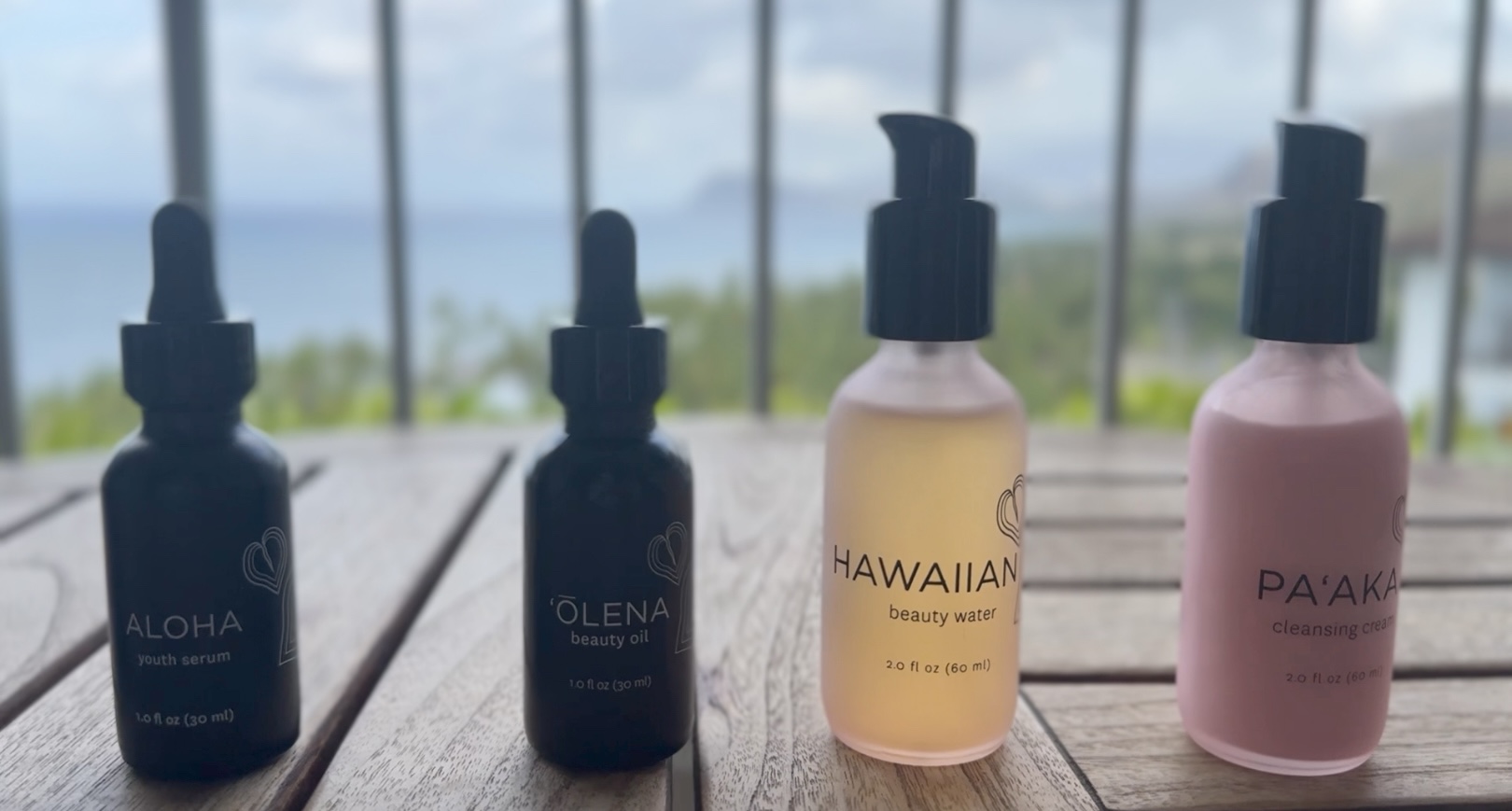
For those days when you’re feeling less than enthused about the state of your skin, try incorporating Lemongrass oil into your daily or nightly routine. This natural essential oil has such a wide variety of soothing and antimicrobial properties, that anyone can find their own personal use and achieve their best skin yet.
By: Emily Dinenberg
What is Lemongrass Oil?
 Lemongrass oil comes from the plant Cymbopogon, and is native to tropical and subtropical areas such as India, Indonesia, Guatemala, and Malaysia. It flourishes here mainly due to the slightly sandy soil and warm climates.
Lemongrass oil comes from the plant Cymbopogon, and is native to tropical and subtropical areas such as India, Indonesia, Guatemala, and Malaysia. It flourishes here mainly due to the slightly sandy soil and warm climates.
In order to separate the oil from the leaves of the plant, it undergoes a process called “Steam Distillation”, in which Lemongrass is boiled and then strained, leaving the essential oil as the remaining product. This oil is known for its golden amber color, and distinct citrus scent in addition to having an impressive nutritional profile.
How To Select & Store Fresh Lemongrass
Though lemongrass is traditionally picked right from the garden in East Asia, fresh lemongrass stalks and leaf buds can be available all year-round in a local farmer’s markets or organic grocery store. If you purchase from the herb stores, look carefully, and avoid yellow discolored and spotted leaves. Sniff for a bright, citrus scent with a hint of floral.
Once at home, wash your stems in clean cold water and air dry. Next, separate its leaves from the stem. Place lemongrass stems in a zip pouch, and keep it separately in the refrigerator since the herb tends to spread its flavor to other foods. This way, it stays fresh for up to 2-3 weeks. The stems can also be frozen and keep well in this condition for several months.
The Benefits of Lemongrass
The chief chemical component in lemongrass herb is citral, an organic compound that has strong antimicrobial and antifungal properties and responsible for its unique lemon odor that is also.
Its leaves and stems are very good in folate, which play a vital role in cell division and DNA synthesis.
The myriad of organic compounds in lemongrass are known to have counter-irritant, rubefacient, insecticidal, antifungal and anti-septic properties. These properties halt microbial and bacterial growth both inside and outside of the body, making it perfect for skincare!
How To Fight Breakouts with Lemongrass
 Limonene, a compound found in Lemongrass oil, is known to help reduce inflammation and kill bacteria. When used topically, it can help ward off skin infections, such as folliculitis and cellulitis, and be used to treat and prevent acne. Similar to lemons, Lemongrass oil’s compounds allow it to be used an an astringent, meaning it can constrict the skin. This process helps minimize pores and limit the secretions of oil, making your skin less susceptible to external germs that may cause breakouts and inflammation!
Limonene, a compound found in Lemongrass oil, is known to help reduce inflammation and kill bacteria. When used topically, it can help ward off skin infections, such as folliculitis and cellulitis, and be used to treat and prevent acne. Similar to lemons, Lemongrass oil’s compounds allow it to be used an an astringent, meaning it can constrict the skin. This process helps minimize pores and limit the secretions of oil, making your skin less susceptible to external germs that may cause breakouts and inflammation!
Because essential oils are extremely concentrated, they should generally be diluted when applied topically.
Here’s how to DIY your own Lemongrass Oil Toner:
- Set aside 1/4 cup of a “carrier oil” (such as avocado or argan oil)
- Mix in 1-2 drops of Lemongrass essential oil (avoid any more than 3 drops as this oil is highly acidic!)
- Store the combination in an airtight container out of direct sunlight
The carrier oils in the toner will be easily absorbed by your skin, adding a boost of moisture. Meanwhile, the antibacterial properties of the Lemongrass essential oil will treat inflammation and bacteria.
Use Lemongrass to Soothe Digestive Issues
Breakouts and bad skin may be a sign of an aching gut.
Lemongrass oil is extremely beneficial in maintaining digestive health. Our digestive system absorbs nutrients from foods that benefit our skin, in addition to dispelling toxins. However, improper function of the digestive systems can lead to a build-up of toxins, causing breakouts, redness, and eczema.
To soothe your digestive tract in addition to reaping the digestive benefits of lemongrass oil, try sipping on a cup of Lemongrass Oil Tea:
- Bring a cup of water to a boil
- Infuse physical Lemongrass in the water
- Strain the lemongrass and pour the hot tea in a mug.
- Add in 1-2 drops of your favorite sweetener and stir
Alternatively, you can use organic tea leaves from your local organic grocery store.
Lemongrass May Boost The Immune System
Lemongrass oil is defined as a “tonic”, simply meaning it boosts your overall health by “toning up” facilitates the nutrient absorption process. In turn, the nutrients help strengthen and boost the immune system. A simple way to incorporate Lemongrass oil into your diet is by adding 1-2 drops of it to your favorite soup.
Although everyone’s skincare routine is unique, we can all benefit from Lemongrass oil. No matter how you incorporate it into your daily or nightly routine, Lemongrass oil is sure to give you the fresh face you’re looking for.
How do you plan on adding lemongrass oil into your skincare regimen? Let us know in the comments!



